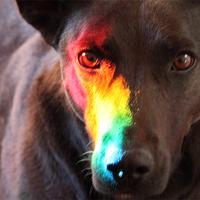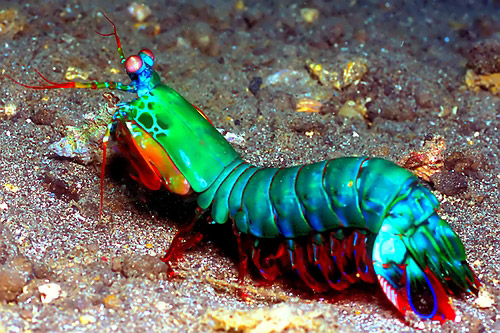
May 21, 2012
We tear into this show with a dark scene from 1665. A young Isaac Newton, hoping to ride out the plague by heading to the country to puzzle over the deep mysteries of the universe, finds himself wondering about light. And vision. He wants to get to the bottom of where color comes from--is it a physical property in the outside world, or something created back inside your eyeball somewhere? James Gleick explains how Newton unlocked the mystery of the rainbow. And, as Victoria Finlay tells us, sucked the poetry out of the heavens.
Jonah Lehrer restores some of the lost magic by way of Goethe, who turned a simple observation into a deep thought: even though color starts in the physical world, it is finished in our minds.
Which, thanks to Mark Changizi, brings us to a very serious question: what do dogs see when they look at the rainbow? We humans see seven colors: red, orange, yellow, green, blue, and violet (ROYGBiV!). But as Thomas Cronin and Jay Neitz--two guys who study vision--explain, that's just a sliver of the spectrum. Along the way, we get some help imagining the rainbow from a choir, and we meet a little sea creature (pictured below), who with 16 color receptors, blows the rest of us earthlings out of the water.

Mantis shrimp, photo by ursanate/flickr-CC-BY-2.0
UPDATE: In the years since we first aired this episode, more research has gone into these amazing little creatures and there is new evidence to suggest that while the Mantis Shrimp has all the parts necessary to see a Super Duper Rainbow, they may not, in fact, be engaging this potential. Curious? Check it out!
Read more:
James Gleick, Issac Newton
Victoria Finlay, Color: A Natural History of the Palette
And be sure to check out The Oatmeal's amazing amazing post, "Why the Mantis Shrimp is my new favorite animal," inspired by this episode.